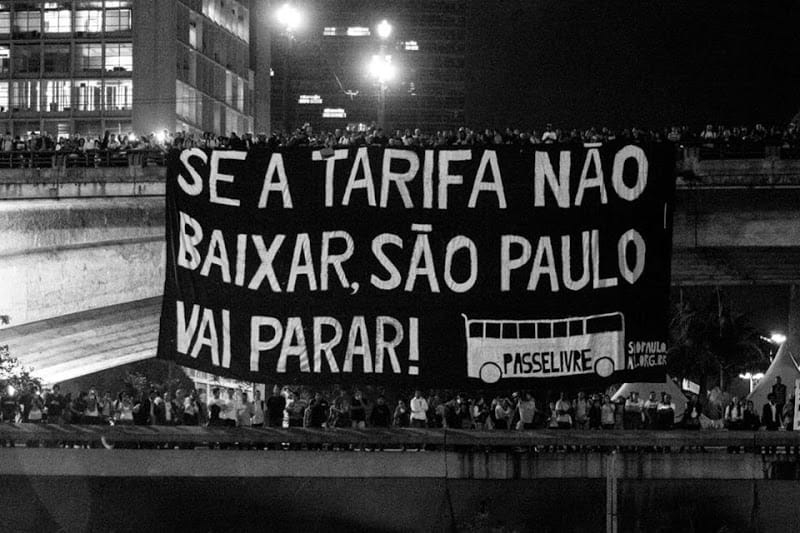Welcome to Dispatch #21! In this issue we want to discuss how to create more resilient organizations while also maintaining democratic principles. We’ll learn from the work of radical feminist Jo Freeman, as well as the experiences of the Free Fare Movement and anarchist artists in Brazil. Fun stuff - let’s get into it!
👋 Are you new here?
Sign up to get free newsletters sent to your inbox every other Sunday.
Have you already signed up? If you like what we've been sharing on the Conscious Citizens, invest in our work for as little as $2 USD/mo ($24/year) by becoming a paid member.
Since 95% of our subscribers are free readers, every contribution, no matter how small, makes a difference.
Easy Actions to Take
Why: United Nations Special Rapporteur Francesca Albanese released a report exposing how technology companies have fueled Israel’s illegal occupation, apartheid regime, and its ongoing genocide against Palestinians in Gaza, including big tech corporations like Alphabet (Google), Amazon, Microsoft, HP, IBM and Palantir. The United Nations must heed calls from workers and its own legal experts to stop platforming AI and the big tech companies that are enabling and systemizing Israel’s genocide. Organized by No Tech for Apartheid
Why: The population of Gaza have reached Stage 5 of famine which is the final and worst stage, causing lasting permanent damage even if food is allowed in. Currently there is plenty of aid available in UNRWA warehouses but no aid is being allowed in. Instead, Palestinians are being massacred at Israeli aid distribution sites on a daily basis. Organized by Slow Factory
Use this template below:
Email to: sgcentral@un.org
Body: Dear Secretary-General Guterres, Gaza is being starved. Over 1 in 4 children under 5 in northern Gaza are acutely malnourished. There is no access to formulas. Hundreds of aid trucks are blocked at the Rafah and Karem Abu Salem crossings. This is not a natural disaster-it is a deliberate famine. We call on the United Nations to:
- Launch a humanitarian airlift into Gaza
- Condemn the blockade of food, water, and medical aid
- Demand full access for humanitarian organizations
Time is running out. We urge you to act.
With Urgency,
[Name]
Why: Clearview AI is a facial recognition company that has stolen over 50 billion images from social media and websites without consent, creating one of the largest facial recognition databases in the world. Recent reporting from Mother Jones has exposed how Clearview AI's founders developed these products to advance a far-right, neo-segregationist agenda. Their software is sold to law enforcement agencies, allowing them to match faces against this massive database scraped from the internet without permission. State Attorneys General have the power to investigate and stop these violations of our privacy rights — but they need to hear from us now. Organized by Color of Change
⏱~3min | (US Only) Demand Congress investigate, expose, and stop ICE’s human trafficking and indefinite detention of immigrants in foreign prisons now.
Why: From El Salvador and South Sudan to Angola, Uzbekistan, and at least 16 other countries, ICE is creating a global pipeline of American-sponsored gulags in countries often notorious for violence and human rights violation. Congressional pressure has already resulted in the release of one person from CECOT. But that’s not enough: Congress must use every tool at its disposal to put an end to the administration’s illegal deportation. Organized by The Intercept

The Cautionary Tale of Brazil's Free Fare Movement
Revealing History

